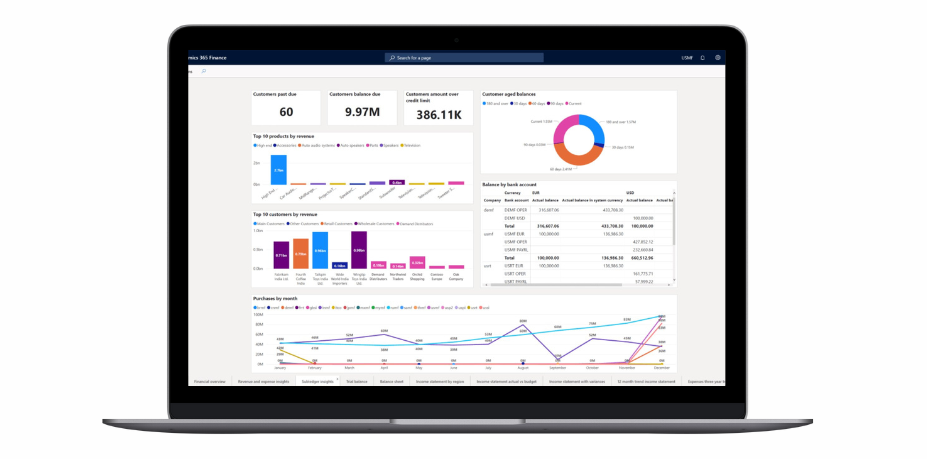How to optimize the billing process in law firms with ERP
In a challenging climate of rising costs and budget restrictions, law firms are – like other industries – looking for ways to drive operational efficiency. The legal billing process is a key area to optimize.

Steps to optimize the billing process include improving the pre-billing work, streamlining multiple payment agreements, tracking billing hours, integrating time tracking in the invoicing system and e-invoicing. In this blog you will learn:
- how the right choice and set-up of ERP can streamline the tedious billing process
- tips to successfully introduce your legal billing software and install new ways of working
Law firms face many challenges, especially when it comes to their billing process. As a law firm operates in a fast-moving environment with many matters and projects running simultaneously, it is crucial to keep an accurate overview of the billing process. The right choice and set-up of ERP and billing software makes this possible. Here are some of the biggest advantages and key features.

Why does your law firm need ERP for its billing process?
If we look at the challenges and complexity in a legal practice, the need for a streamlined process in a centralized system becomes clear. An ERP system allows law firms to become more streamlined. Law firms typically work on many fast-moving matters in different stages. Many bills and pre-bills need reviewing and swift processing, which comes with tasks such as tracking billing hours, sending invoices, and following up on outstanding payments of customers. These are time-consuming tasks when relying on traditional methods.
Legal billing software makes the entire billing process easier and eliminates several manual time-consuming tasks. An ERP system is designed to support and enable a smooth billing process, not only reducing work time and manual errors, but also bringing more transparency, resulting in better client relationships.
The benefits of using billing software
- Flexibility
A law firm typically uses different rates according to the type of job they are doing. ERP offers the flexibility to adjust rates and easily switch between standard rates and individual or other rates.
- Improved cashflow
An ERP-driven billing process helps to close the gap between invoicing and collection. Electronically generated invoices are more accurate and transparent and will result in less complaints and higher customer satisfaction. In addition, e-invoices are more convenient and more likely to be paid faster payment than paper through mail invoices. Once e-invoicing is installed, introducing online payments is also a small step to contribute to improving your cash flow.
- Real-time visibility for accounting
With an ERP solution for your billing process, your accounting team has real-time insight and instant visibility into your firm’s finances. They can easily follow any changes made to your invoices, pre-bills or transfers.
- Better client relationships
Billing-invoicing improves and strengthens client-firm relationships, very important in today’s competitive law firm landscape. An ERP system helps to build a harmonized working relationship with your client from the beginning of a case throughout the collaboration and various billing moments. Detailed and transparent invoices are easy to understand for your clients and build trust.
- More accurate invoicing
Processing many invoices is quite a task for your accounting department. With an electronic billing solution, your firm can optimize its billing process and automate manual tasks such as. time-tracking and invoice generation. This is a huge time saver for your accounting team and also reduces the risk of manual errors during time registration and billing.
- Data-driven decisions
Qualitative information is the foundation of good decision-making. An ERP system captures all relevant data for your firm and will enable you to take data-driven decision. With these data you can build dashboards, based on the KPIs that matter for you, e.g. to track progress on cases and to monitor financial performance.
- Security & privacy
Data security is essential for law firms. Legal billing software offers the necessary security through password protection and role assignments. Through role assignments only people with the right permissions have access to certain data, ensuring that personal and financial details are kept safe.

Ways to implement an ERP solution and improve your billing process
Introducing an automated billing solution also brings along a new and improved way of working. Therefore, it is essential to work on a policy to ensure a smooth workflow. Here is how to best implement your ERP billing solution.
-
Outline the process and install guidelines
A good way to understand your law firm’s billing is to write out a policy for your entire old and new billing process. You will instantly notice that the digital process will eliminate some steps, resulting in a more efficient and shorter process.
Legal billing solutions also offer the option of templates. You will be able to create preferred templates and guidelines to use throughout your billing process, ensuring consistency. Templates range from communication templates to guidelines for sending invoices and language guidelines. - Include your financial department
If your law firm is considering to introduce an ERP billing solution, it is recommended to include your entire team in the project. After all your team members are the ones who will have to work with the solution on a daily basis. It is wise to include the right people along the project, from the start when your consider a suitable solution and also when mapping out your processes as well as when drafting your new policy for ways of working. -
Include dispute and collection methods into your policy
As one of the greatest challenges is keeping track of unpaid invoices, it is recommended to build a way of working in your policy to handle different types of invoices. For example, you can create a set an automated process for when a bill is rejected, disputed or unpaid, triggering certain notifications within the system, so an unpaid invoice never gets overlooked.
Final thoughts
While the legal industry used to rely on traditional billing methods, a new way of working has made its entrance. Now automated and digital processes are being widely implemented. Improving the pre-billing process, streamlining payment agreements, tracking billing hours, integrating time tracking in the invoicing system and e-invoicing are some of the key steps that you can take to optimize your legal billing process. Introducing an ERP solution is the way forward to achieve a better billing process, to stay competitive in the industry.
